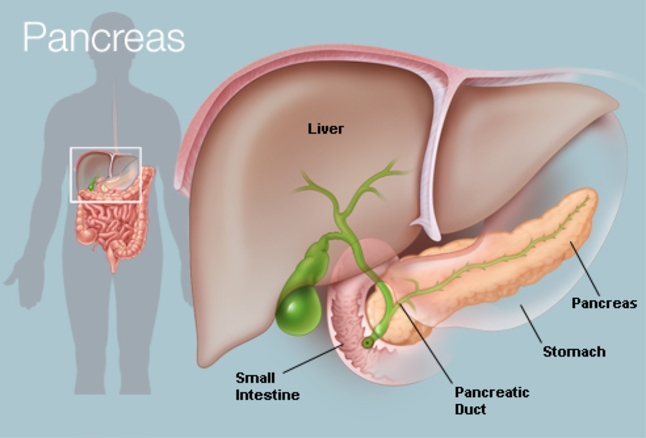The pancreas is an important organ of the human endocrine system and is located in the abdominal part. It has a crucial role in converting the food to the fuel for the body. Two main functions are associated with the pancreas, an endocrine function for the regulation of blood sugar and an exocrine function that plays a role in digestion. The pancreas is found in the upper left abdomen behind the stomach. It is surrounded by the other body organs including the spleen, liver, and small intestine. It is 6-10 inches long and has spongy nature and is shaped like the fish or flat pear. Various major blood vessels are present around the pancreas including the portal vein superior mesenteric vein and superior mesenteric artery. The 95% of the pancreas consists of the endocrine tissues which are responsible for producing the pancreatic enzymes for the digestion.

Functions of Pancreas
Endocrine Functions: The endocrine part of the pancreas consist of the islet cells for synthesizing and releasing the important hormones to the bloodstream. The two main pancreatic hormones, insulin and glucagon helps to lower and raise the blood sugar level respectively. The maintenance of the sugar level of the blood is essential for the normal functioning of the key organs such as liver, kidneys, and brains.
Endocrine Functions: The pancreas has the exocrine glands which cause the production of enzymes which are important for the digestion. These enzymes include the chymotrypsin and trypsin for the digestion of proteins, amylases for digesting the carbohydrates, and lipases for the breakdown of the fats. The pancreatic juice is released when the food is entered into the stomach. Along with the bile, the pancreatic juice helps to digest the fats, proteins, and carbohydrates.
Disorders Associated with Pancreas
The various disorders which affect the pancreas, include pancreatic cancer, precancerous conditions such as IPMN, panIN, and pancreatitis. Each disorder has varying symptoms and different treatments are required according to the nature of the disease. The development of the exocrine tumor in the pancreatic duct causes pancreatic cancer. This condition is much rare, and still, the exact cause of the pancreatic cancer is not known. But some factors are known that enhance the development of pancreatic cancer. Among these, cigarette smoking is the topmost factor. The pancreatitis is the inflammation of the pancreas and it occurs when the secretions of the pancreatic enzymes build up and start digestion the organ by itself. It can cause acute painful attacks and the chronic conditions that may last over many years.
